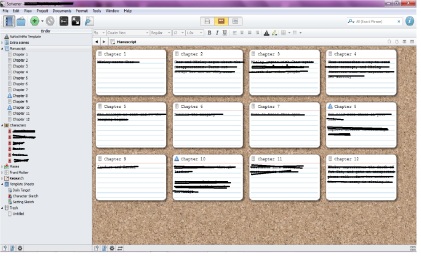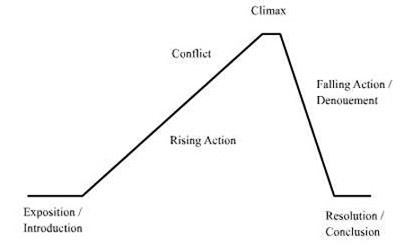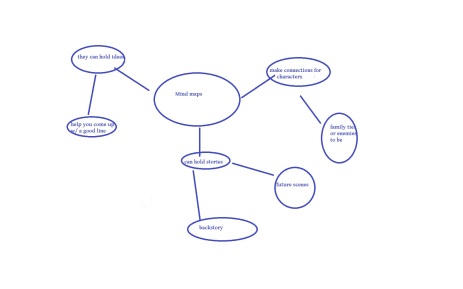Does anyone actually use this stuff? Seriously, how many of you actually use an outline or map out their story visually? This isn’t sarcasm or anything, I’m totally asking right now.
I’ve been writing seriously since I was about sixteen and I’ve never used this method until recently, unless you count academic papers. Which, I don’t. So when I first started using outlines, I started out with trying to write a novel, and I wrote a couple of sentences about each chapter I wanted to write or plans for scenes in my head. Of course, that didn’t help me since I was trying to do something extremely specific with time-lines. So, I then proceeded to draw out how my story was going to progress. It became a map, but then that wasn’t enough.
trying to do something extremely specific with time-lines. So, I then proceeded to draw out how my story was going to progress. It became a map, but then that wasn’t enough.
This is the outcome of my story outline/map.
I think I might have taken it too far.
Insane, right?
In my personal copy, I included one sentence descriptions of what would occur in each chapter. I used a combination of mapping out the story lines and regular outlining (by words alone).
I think we’re so used to using this thing so much 
that we forget that not all stories don’t actually look like that——->
Even short stories have different progressions, especially when the author wants to shake up the marbles in that head of yours.
Now, I know a few things about outlining so I wanted to discuss them because lately it’s been on my mind.
Outlining: You know this is a bunch of words that summarize/plan out what you are going to write. The thing is, there’s more than one way to do it. You definitely don’t need to do this:
Beginning Middle End
We’re not in middle school folks. We all know full well that stories don’t always work this way. If you want to use an outline then you have two options: Brief or Extended.
Brief outlines consist of one to two sentences of what each scene/chapter is going to look like.Now a brief outline could be like this: “He falls into the demons nest.”
You’re basically writing the bare minimum. And this is perfect for someone who doesn’t want to feel restricted or stifled by past plans. On the other hand,
Extended outlines, you’re basically filling in the blanks, adding far more detail then in a brief outline. “[Character] is shoved as a sacrifice into a demons nest. The ground is wet soaked with blood and as [character] stands he sees lights lining the walls. [character] walks forth, trembling from the cold, and crawls to the end of a tunnel, etc, etc.”
Now, I understand how some writers a re reluctant to use an outline. There’s this idea that you’re not a writer if you have to plan it or that you should be inspired as you write. That’s not necessarily true. Some writers actually like knowing where they’re going. Personally, I like to write when I’m inspired. But if I have to use an outline now, I will.
Here’s why you should use an outline:
1.You know where you plan on going. There are so many scenes in your head that sometimes you’re afraid you’ll lose them. Write them down and you can look back at them to remind yourself, or see where you diverted from if you decide to change something.
2.It’ll help you look back and see where you screwed up (if you did) or just where you started. The nostalgia will consume you!
The only downside I could ever see is if you write an outline, but lose interest because it’s all down on the page already.
I’ve certainly had that experience of suddenly losing interest because I felt like I’d just told the story. I suppose that’s why I myself am reluctant to use an outline, unless I really am stuck. It’s when I’m stuck that I find it so useful, so don’t disregard an outline if you feel you may be stifled by the form and your past plans. You can always take it and look back to see what you originally planned and how you started out. It can act as a reminder of where you headed, even if you went in a different direction there can be things in the outline that you’d still like to do, and are still possible.
And there are plenty of other versions of outlines, like :
Note cards: which you can have virtually (if you download/buy programs like scrivener) or buy a stack of actual note cards and write this down. Note cards essen tially are used to summarize a quick scene or major facts about it like plot, characters, setting, etc… It’s absolutely a good way to keep track of your characters, especially when you’ve got more than two or three. (I do it to keep track of what my characters are wearing). There’s also the choice of using it for scenes, mix and match for link stories or hey! If you’re doing a collection of stories and you’re looking for the right tone or mood, use it. You can virtually use this method for anything, honestly.
tially are used to summarize a quick scene or major facts about it like plot, characters, setting, etc… It’s absolutely a good way to keep track of your characters, especially when you’ve got more than two or three. (I do it to keep track of what my characters are wearing). There’s also the choice of using it for scenes, mix and match for link stories or hey! If you’re doing a collection of stories and you’re looking for the right tone or mood, use it. You can virtually use this method for anything, honestly.
Truthfully, the list could go on, but these I know the most/best. I’ve used them before, as I own a copy of scrivener, and I’ve messed around with the others in classes and on my own (as seen in my image above). Some are fun, some annoying, but it’s really all about preference. Like most things what works for some won’t work for others. Now I don’t know all of the million, bazillion methods of outlining, but I do have a link or two below that go into a little more detail than I do. So check them out. And If you’re interested in learning a little more outline tricks check out part 2 for outlining with maps.
http://www.helpingwritersbecomeauthors.com/2013/09/evolution-scene-outline-final-draft.html
http://www.writersdigest.com/whats-new/choosing-the-best-outline-method-for-you
 trying to do something extremely specific with time-lines. So, I then proceeded to draw out how my story was going to progress. It became a map, but then that wasn’t enough.
trying to do something extremely specific with time-lines. So, I then proceeded to draw out how my story was going to progress. It became a map, but then that wasn’t enough.




You must be logged in to post a comment.